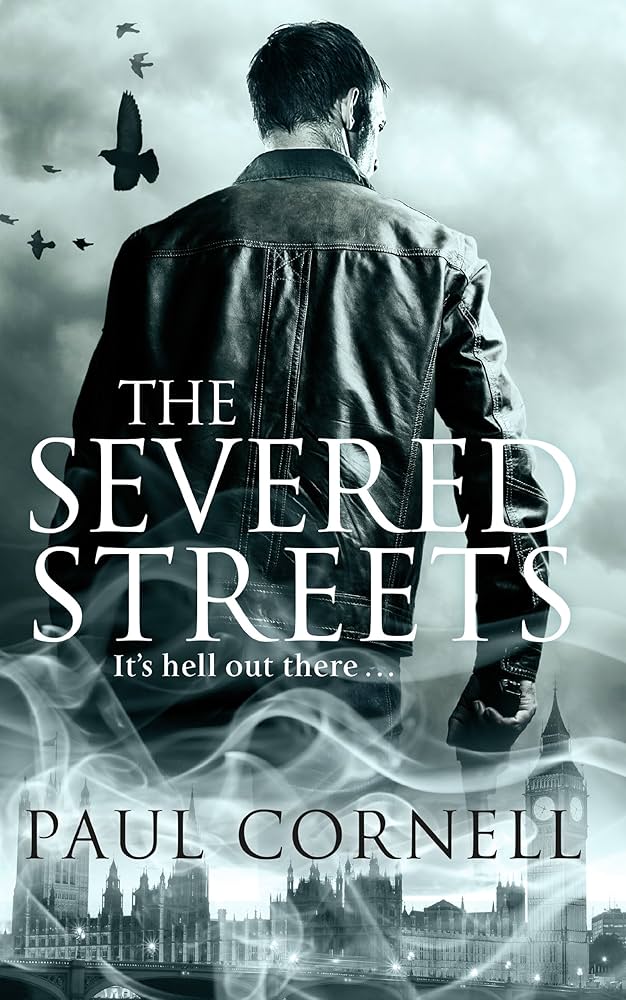Book review: The Severed Streets by Paul Cornell

Whoops! Chalk this one up as a top contender for brilliant marketing idea gone disastrously wrong. Suppose you’re a writer, you’ve set your first novel of paranormal detective fiction in a version of London really quite similar to the London of Neil Gaiman’s Neverwhere. The book has done well but obviously you want the next in the series to do better. Then an amazing possibility presents itself: you meet Neil himself and tell him about your book. You get friendly with him. You think about asking him to read your book and write a cover comment and he’s happy to do that but he’s done that for a fair few other writers and you want your book to stand out.
Then you get that brilliant idea. Your vision of London owes so much to Gaiman’s Neverwhere. Would he…? Might he…? After all, the idea plays into Gaiman’s own use of metafiction. So you ask him and he says, “Yes.”
“Yes!” You are beyond delighted. This will really make your book stand out.
Neil Gaiman has agreed to appear in your novel as one of its characters, a writer navigating on the borders between this world and Neverwhere, dipping his writerly toes into the supernatural world of your own creation.
A more perfect, more arch, tribute to Gaiman’s vision of London that has inspired your own book is hard to imagine.
What’s more, Gaiman doesn’t even ask to be the book’s hero, or even heroic: he’s happy to be a morally dubious figure, skating the boundaries of self-interest and altruism, right in line with your overall vision.
Yes, this is brilliant, this is really going to work…
Then, ten years later, Gaiman goes and gets accused of all sorts of horrible behaviour by various women. He denies it, obviously, but then sues one of the women for breaching a non-disclosure agreement. What was your book’s biggest selling point suddenly becomes an albatross of Me-Too proportions.
The most brilliant selling idea of modern metafiction gets undone by the fiction ceasing to be meta.
0 Comments